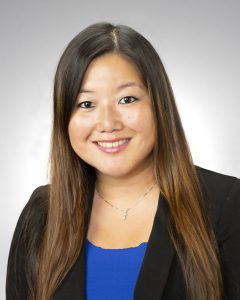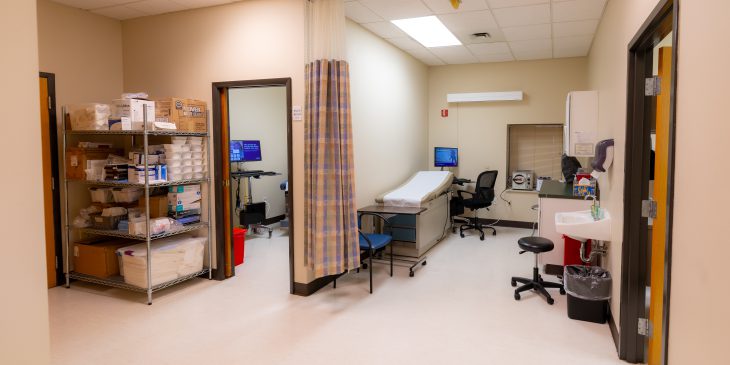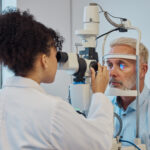McKeesport’s 9th Street Clinic, a free primary care clinic serving uninsured adults, has opened new offices after an explosion forced a move to a temporary space inside UPMC McKeesport.
Since 2007, the clinic has provided vital health care services for some of the region’s most vulnerable residents free of charge on a walk-in basis. Providers offer physicals, health screenings, treatment for illnesses and chronic conditions, specialist referrals and case management. An on-site pharmacy also lowers barriers to access for medications.
“I was amazed at all the people we saw who had neglected getting care for so long,” said clinic co-founder William Markle, M.D., former director of the UPMC McKeesport Family Medicine Residency Program. “People who knew they had diabetes, but couldn’t go to doctors or get medicine, just lived with it. We found cancers that had been neglected and unfortunately in late stages. Sky high blood pressures were common.”
Markle remembers one patient who was led into the clinic by her daughter because she was blind due to cataracts. “An easily cured problem, but she had not seen a doctor,” Markle said. “She was able to get surgery and see again.”
The clinic has also been an important training ground for family medicine, general internal medicine and pharmacy residents at UPMC McKeesport. Yui Sugiura, D.O., director of Osteopathic Education at the UPMC McKeesport Family Medicine Residency Program, said it’s important for new doctors to experience providing care in a low-resource setting.
“This was my number one choice for residency. Not many residencies offer the chance to work with uninsured patients,” said Sugiura, who first came to the clinic as a family medicine resident in 2016 and now serves as medical director. “I firmly believe that health care is a human right, and because we are a walk-in clinic, we can spend more time with our patients and get to know them as people.”

Yui Sugiura, D.O., director of Osteopathic Education at the UPMC McKeesport Family Medicine Residency Program
In August 2022, an explosion destroyed the clinic’s former site in the basement of McKeesport’s Common Ground Building on 9th Street. Knowing that patients rely on the clinic, which is open every Thursday afternoon from 1 p.m. to 7 p.m., the staff quickly set up at UPMC’s nearby Latterman Family Health Center the week of the explosion. Then a temporary space was provided at UPMC McKeesport for the clinic to utilize rent-free while staff searched for a permanent home.
In early October, the clinic moved to its new offices at 1305 5th Ave. in McKeesport. The new space boasts four exam rooms, a triage room, laboratory and pharmacy. After the explosion, patient volumes declined considerably, due to capacity and accessibility issues. Staff expect patient volumes to recover in the new space.
“It’s so nice to be in this space,” said Marissa Zapf, clinic office manager and clinical data analyst. “We can work more efficiently and ultimately provide better care for our patients.”
While the clinic is an independent non-profit entity, it has a close ties with UPMC through the Latterman Family Health Center, the University of Pittsburgh School of Medicine and Pitt’s Residency Program. Recent donations to the clinic from the UPMC McKeesport Medical Staff and the McKeesport Hospital Foundation totaled $50,000. This has not only helped to fund the clinic but to provide patients with low-cost cancer screenings through the UPMC Hillman Cancer Center and comprehensive eye exams at the University of Pittsburgh School of Medicine’s Department of Ophthalmology.
The clinic has partnered with the American Heart Association to provide free blood pressure cuffs to patients for at-home monitoring. Patients are also referred to the local non-profit McKeesport Agape Center for help accessing fresh food.
“If people don’t have access to healthy food, how are they going to get their hypertension or diabetes under control?” said Sugiura.
Patients laud the compassionate care provided at the clinic, noting that clinicians go above and beyond to encourage their wellness journeys. Former patient Chad Rudge credits Dr. Sugiura with helping him control his diabetes and quit smoking after twenty years.
“She would call to check in on me,” Rudge said. “It was like night and day compared to experiences with other clinics.”
According to U.S. Census data, nearly 5% of Allegheny County residents lack health insurance. People who are uninsured are less likely to receive essential care for illnesses and chronic conditions and are more likely to end up in the hospital and die prematurely.
A social worker on staff helps connect people with insurance coverage, which can be a bittersweet development for patients like Rudge, who is no longer eligible to receive care at the clinic because he is insured.
“If I could go there with my insurance, I’d rather go there than somewhere else,” he said.
Journalists interested in learning more can contact mediarelations@upmc.edu.









